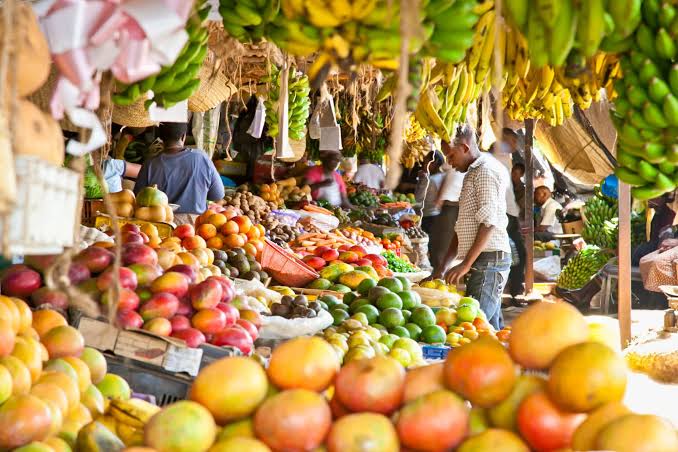Food security experts have called for the immediate implementation of the Right to Food Act, emphasizing that it is a crucial step towards ensuring that every citizen has access to adequate and nutritious food in Nigeria.
The Executive Director of the Global Initiative for Food Security and Ecosystem Preservation (GIFSEP), Micheal Terungwa David, disclosed to journalists at the sidelines interview of the Media Training on the Right to Food Act on Wednesday in Abuja that the law has been in place since March 2023, but its implementation remains a significant challenge.
He raised concerns that the awareness creation of the right to food law has been very low adding that millions of people are not even aware that there is a law that makes food a basic human right.
He stressed that the implementation of the law cannot happen without awareness, and citizens must be involved to demand accountability and transparency from the government.
“GIFSEP has organized training for journalists to raise awareness about the Right to Food Act and its importance and that the law is not just an act, but a constitutional amendment, making it a robust law that requires implementation.”
“The Right to Food Act aims to ensure that everyone has access to adequate food, and the government is obligated to respect and fulfill this right.”
He highlighted that food security is also a national security issue, and the government must prioritize its implementation.
“In addition to raising awareness, GIFSEP is advocating for the government to support smallholder farmers, who produce most of the country’s food.”
The Executive Director also emphasized that palliatives are not a sustainable solution to food security and that the government must guarantee the availability, accessibility, and affordability of food.
“The African Commission on Human and Peoples’ Rights has also emphasized the importance of the right to food, recognizing it as a fundamental human right.”
“With the global food crisis worsening, the implementation of the Right to Food Act is crucial to ensuring food security for citizens.”
Also speaking, the Executive Director of Farm and Infrastructure Foundation(FIF), Prof. Gbolagade Ayoola, explained that the Right to Food Act is a fundamental law that recognizes food as a human right, rather than just a human need.
According to him, “This distinction is crucial, as it makes food a claimable right that can be enforced by law. The absence of a law guiding the right to food in Nigeria has led to widespread violations, including the failure of government and private sector entities to respect, protect, and fulfill the right to food.”
He also cited examples of environmental degradation and the exploitation of natural resources, which have had devastating impacts on food security in the country.
“The Right to Food Act, signed into law in 2023, aims to address these violations by recognizing the obligation of government and private sector entities to respect, protect, and fulfill the right to food.”
“This includes providing food assistance to individuals who are unable to feed themselves due to natural disasters or other circumstances.”
Professor Ayoola believes that the Right to Food Act is a panacea for hunger in Nigeria, as it provides a framework for addressing the root causes of food insecurity.
He emphasized that policy environment plays a critical role in determining the success of food security initiatives, and that the Right to Food Act provides a crucial tool for holding government and private sector entities accountable for their obligations.
He warned that the implementation of the Right to Food Act will require a significant shift in mindset, as food is often seen as a privilege rather than a right.
He, however, expressed optimism that the law will provide a powerful tool for advocating for food security and holding those in power accountable for their obligations.
He highlight the critical importance of the Right to Food Act in addressing the complex issues surrounding food security in Nigeria.
“By recognizing food as a human right, the law provides a powerful framework for advocating for the rights of marginalized communities and holding those in power accountable for their obligations.” He added.
READ MORE FROM: NIGERIAN TRIBUNE
WATCH TOP VIDEOS FROM NIGERIAN TRIBUNE TV
- Let’s Talk About SELF-AWARENESS
- Is Your Confidence Mistaken for Pride? Let’s talk about it
- Is Etiquette About Perfection…Or Just Not Being Rude?
- Top Psychologist Reveal 3 Signs You’re Struggling With Imposter Syndrome
- Do You Pick Up Work-Related Calls at Midnight or Never? Let’s Talk About Boundaries







